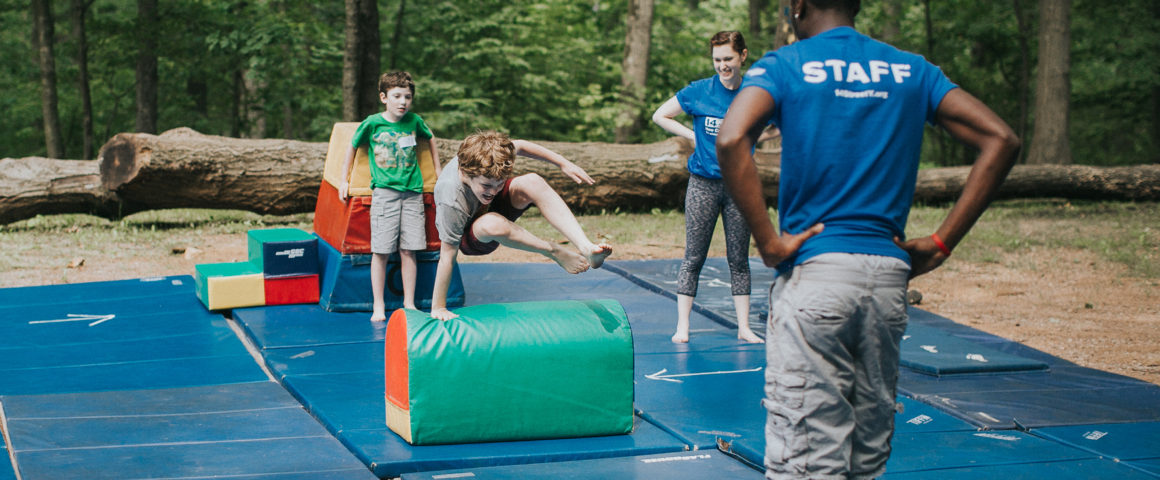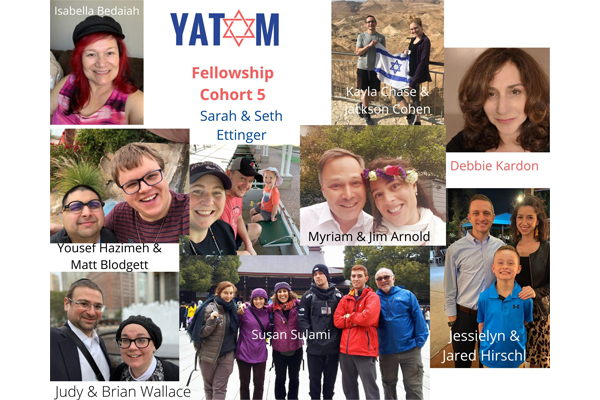By Lindsey Silken & Jenni Zeftel
You’re starting to think about summertime and what on earth you’re going to do with the kids for two months – err – we mean, how to provide your darlings with a meaningful and fun summer experience. And if it gets them out of the house? Win-win. Maybe you’ve only heard about Jewish summer camp in passing. Maybe you or your partner already think it’s a great idea but one of you isn’t quite sold.
Here’s what you need to know about how Jewish day camp can be an especially good fit for interfaith families. That’s not to say that camp is right for every kid or that every camp is right for every family. InterfaithFamily – the experts on, well, interfaith families, and Foundation for Jewish Camp – the experts on, you guessed it, Jewish camp, have teamed up to give you the best tips, tools and resources for making this decision for your family. Here are the top five things we think you should know.
- Local experiences = local friendships.
Because Jewish day camps are located much closer to home than Jewish overnight camps, the friends your child makes at camp are also close to home, making it that much easier for Jewish day camp friendships to last throughout the year. Likewise, because many Jewish day camps are tied to host organizations like JCCs, you may find your family invited to different program offerings at a conveniently located host organization throughout the year. These events can offer you and your family an entry portal into Jewish life and a Jewish community that aligns with your family’s priorities.
- You have options.
When it comes to Jewish day camps, there is a diverse spectrum of choices. There are Chabad camps, JCC camps, Conservative and Reform movement camps, independent camps and synagogue camps. Jewish day camps range in size, program, facility and mission. You might be thinking, great, more options. Where do I begin? Check out websites for Foundation for Jewish Camp (jewishcamp.org), the American Camp Association (find.acacamps.org) and the Jewish Community Center Association (jcccamps.org/jcc-day-camp) to learn more about the different kinds of Jewish day camp options available to you and your family.
- Test the waters on your own timeline.
Many Jewish day camps offer short (one or two weeks) and flexible (all different points throughout the summer) sessions so that your child can try out the experience without a serious time or monetary commitment. You could even try multiple camp programs in one summer. You might quickly find, however, that you’ve found the right fit for your family, and you’ll want to stay put.
- Jewish day camp is for the whole family.
When you send a child to overnight camp, you say goodbye at the bus stop and don’t necessarily see them again until visiting day, but day campers come home every day. You’ll get to hear what they’re actually doing on a daily basis – not just when that weekly postcard comes in the mail. You’ll also see the same group of parents at pick-up and drop-off. In this way, the Jewish day camp experience impacts the whole family, and often, the grown-ups make friends just as easily as the campers do.
- It will help prepare you for overnight camp.
Many Jewish day camps have ties to Jewish overnight camps such as the new B’nai B’rith Day Camp in Portland, OR. The day camp opened last summer after the years of success and meaningful Jewish summers provided by the overnight camp widely known as BB Camp.
Older day campers are often provided “dip-your-toes-in” experiences at partnering overnight camps.
Liz Broberg, day camp and youth engagement director at BB Camp says that day camp offers a very easy entry point for Jewish interfaith families “because the ‘Jewishness’ is more integrated through the values practiced than a study of Torah or a celebration of a specific holiday.”
She explains that the Jewish values curriculum, which both the overnight and day camp use, “is accessible and relatable to everyone, whatever your faith or affiliation. It infuses Jewish values like tikkun olam (repairing the world), kehillah (community), simcha (joy), manhigut (leadership) and more into the everyday camp culture. These are values that many parents agree are important for their children to learn and practice. This makes it very easy for interfaith families to connect with the content and feel comfortable in a Jewish environment.”






